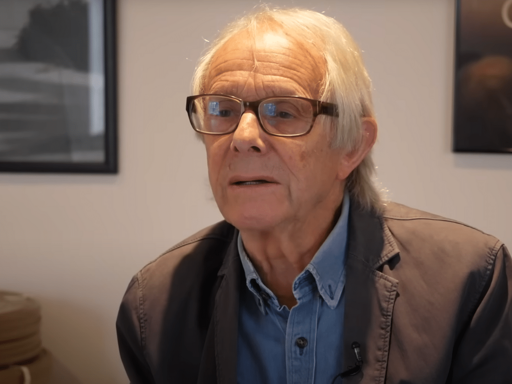Ken Loach and Yannis Varoufakis have urged the organisers of Your Party to “do whatever it takes” to make the project work as a left alternative Starmer’s Labour. For the the first time in decades, they argued, there was real momentum behind a grassroots democratic movement. The pair implored:
Without you all working together, this historic opportunity will be lost. With you all working together, we can change history.
Future generations are watching us, they are watching you. Failure is incomprehensible. This must not be our legacy.
For his part, Ken Loach has built an inspiring career on both capturing and creating said historic opportunities. He’s been on the frontline, filming workers organising and striking, pushing back against privatisation, shining a light on the devastation of British industry and the rise of the far right. Those films form the basis of a new season celebrating the director’s body of work, which opens this Friday at London’s Garden Cinema. Whilst the event will feature some of his more widely distributed and acclaimed films from the noughties (Looking For Eric, The Angel’s Share, Sorry We Missed You…), the focus will largely be on his earlier films, many of them rarely screened.
 via Garden Cinema
via Garden Cinema
Galvanising younger audiences
Loach has documented key moments and under-explored chapters of history across his nearly six-decade long and illustrious career. Yet, although he is internationally feted, season curator Erifili Missiou, speaking to the Canary, argues that younger audiences and to an extent the wider general public aren’t aware of ground-breaking his first films were:
The new generation in the UK tends to know little about how important and radical his earlier work was, and how instrumental it was in changing the discussion and legislation. We want to encourage these new audiences to revisit Ken Loach’s films.
Missiou emphasised how Loach’s filmography holds the spark of resistance:
Years on, they still have the power to move, inspire, and make sense of the world around us. They can act as a call to action.
It’s easy to underestimate their impact now, but films like Up the Junction‘s depiction of abortion was part of a wider drive that led to the legalisation of abortion in 1967. Cathy Come Home and its depiction of homelessness, watched by 12 million people, caused public outrage that boosted the creation of the charity Crisis. Many of the films will include introductions and Q&As to contextualise their subjects and discuss their relevance today. Spanish Civil War-set Land and Freedom will offer the panel the opportunity to discuss international solidarity movements and countering the far right. A screening of Palme d’Or winner The Wind That Shakes the Barley will act as a fundraiser for a Palestinian cultural organisation in honour of Loach’s longstanding support for Palestinian rights and Irish-Palestinian solidarity.

Revisiting Loach’s censored films
The season will revisit Loach’s most suppressed films. These were censored or shelved for supposedly breaching impartiality rules. In fact, they exposed the organisations that had commissioned them and cemented the filmmaker’s reputation as a radical director. In A Question of Leadership and Which Side Are You On? Loach follows steelworker rank-and-file trade unionists and miners respectively, as they organise, voice their frustrations, argue with each other and with their union representatives, make music and fully engage with the political landscape. The films are a rare opportunity to revisit a proud history of workers organising and to inspire efforts on the left today. The destruction of industry and the dismantling of worker’s rights weren’t a blip in history. The reverberations are still felt today.
In the same vein*, The Save the Children Fund Film*, commissioned in 1969 by the eponymous charity, only saw the light of day in 2011. Save the Children had shelved it for laying bare the colonialist mindset that underpinned their actions in Kenya. Again, this is a must-see film that is only too relevant. It provides a necessary critique of NGOs that still resonates today. Indeed, those same neo-colonial attitudes are still present in some larger organisations that yield considerable soft power, linking aid to foreign policy.
The activist shouldn’t overshadow the artist
Despite their uncompromising depictions of sociopolitical realities, Ken Loach’s films are far from bleak. In fact, they champion the human spirit and celebrate the best of us. Missiou is keen to stress that, activism aside, Loach is a a master of his craft. He uplifts everyday trials into art. His films do what cinema does best: they foster empathy and entertain. Missiou told me:
Let’s not forget, Ken Loach has received well-deserved accolades from his peers in the film industry. His films may tackle serious issues but they also have a lot of humour. They are hopeful. Loach posits solidarity and dignity as vectors of triumph over injustice.
Ken Loach: A Retrospective opens on Friday 26 September at the Garden Cinema in London. The season will run until 27 November. For tickets and information, visit the cinema’s website.
Featured image via YouTube screenshot/Double Down News
From Canary via this RSS feed


